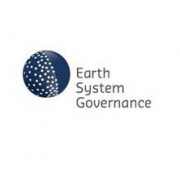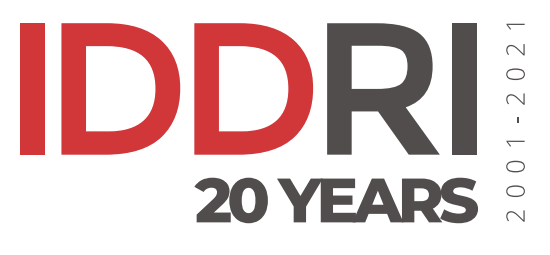
Programme
Multilateralism has been a significant feature of international relations in the 20th century. It is also a dynamic historical process which cannot be dissociated from the context in which it has taken shape. It is both considered necessary and criticized for not being sufficiently efficient: particularly in the face of increased geopolitical tensions between major powers, and not performing at the scale of the immense sustainability challenges of our century. It is also criticized for not being sufficiently fair, both in terms of decision-making among governments, and in terms of the representation of different social groups within or across countries.
As a mechanism for negotiation between numerous national states and as a political project tending to the achievement of shared objectives, multilateralism is largely confused with internationally organized collective action. However, collective action has gradually changed since 1945. New voices and new directions have emerged. Developing countries became the majority in the 1960s and, as a result, have also influenced the agenda, as well as the forms of decision-making. Global environmental governance, and the Rio principles for instance, have played a key role in the advancement of participation and representation of different groups. However, expectations and demands on multilateralism to change or to be reformed are numerous and different across the globe.
As the world faces the impacts of climate change, unprecedented biodiversity degradation, and rising inequalities between and within countries that have been reinforced by the impacts of the Covid-19 pandemic, the 2015 agreements on climate and sustainable development (Paris, Addis Ababa, and Agenda 2030) seemed to represent the unique set of commonly accepted goals for humanity. What do the different regions of the world really expect from multilateralism to address sustainability challenges and make sustainable development come true?
Multiple proposals to fix multilateralism are currently on the table, proposed by a diversity of governmental players and independent experts. These deal with issues of legitimacy, accountability, and effectiveness, but also try to identify new forms of governance to emerging challenges of the transformation to sustainable development. Do these new challenges require new forms of multilateralism? What are the new levers, actions, concepts, values, solutions, and strategies proposed to advance multilateral cooperation?
Innovative or existing complements or supplements to multilateral institutions are being explored, such as ‘minilateralism’ (as the Group of 20 or the Group of 7), ‘plurilateralism’ through other forms of clubs, new international alliances of stakeholders, but also new forms of participation of civil society and citizens: many of them emerge from the field of sustainability. Other proposals or examples to make international commitments count more on the ground can be found in the field of global health or nuclear safety. Given the expression by citizens that they are looking for protection and sovereignty over their future in a globalised and transforming world, many other proposals insist on security as a key issue, linking the prevention of conflicts to ecological and human security.
This session will map out the contrasted visions and solutions currently on the table and discuss the role of environment protection and sustainability as a common goal but also as a lever for change, based on past contributions of global environmental governance to the advancement of multilateralism and on future prospects that climate and biodiversity remain a key entry point for cooperation despite current tensions between major powers.
Since 1945, economic and trade interdependence has been expanding, accompanied by the Bretton Woods institutions and the more recent establishment of the World Trade Organisation (WTO), resulting in strong international economic and financial cooperation. Recent economic crises have shown the strong mobilization and impact of institutions such as the International Monetary Fund. Despite the important changes in dominance of economic power, international institutions and a consortium of industrialized and emerging states allowed the consolidation of an orientation of economic liberalism, that could be presented as the Washington consensus. This specific form of multilateralism was based on a principle of specialization and division of tasks: trade at the WTO, economic stability at the IMF, economic development at the World Bank, and labour at the International Labour Organisation.
Faced with the rise of global risks from financial instability to climate change and pandemics, the need for international economic cooperation is fundamental. Despite G20 driven advances like the Financial Stability Board and IMF progresses on post Covid-19 debt relief, the action of economic multilateralism still seems to be insufficient. If there is one particular area that illustrates the disaffection of states with regard to multilateral cooperation, it is the regulation of trade and investment.
Changing international economic and financial governance appears to be an essential condition for sustainable development and the implementation of the 2030 Agenda. Climate change, environment and sustainable development can no longer be considered as externalities as they were to the Washington Consensus.
How can economic, commercial, and financial governance progress to internalize the major changes in the world, such as climate change or the fight against inequality? What comes after the Washington Consensus? How to make sure that the new forms and principles of cooperation that can be invented ensure better economic and social inclusion? To what extent is environmental protection an integral part of this discussion?
The traditional expression of multilateralism is based on the elaboration of treaties, adopted by all or part of the international community and recording the reciprocal commitment of States. In this respect, although agreements have multiplied considerably since the second half of the 20th century, compliance and enforcement mechanisms have remained limited. The new forms of multilateralism, particularly in the field of sustainability, are also based on flexible bottom-up processes, largely declaratory: the robustness of the procedures and mechanisms to link commitments to actual implementation is critical and heavily debated.
In this context, how can we ensure the effectiveness of multilateralism and make it count on the ground? Legal innovations are possible and the WTO dispute settlement mechanism or the IAEA capacity inspection show that the international community has been able, in very specific areas, to equip itself to ensure the implementation of international commitments. Recent litigation examples, where national civil society questions in court the coherence between international commitments and national governmental action, illustrate also new modalities of effectiveness of global governance. The challenge today is not only to make this type of mechanisms politically acceptable in the environmental field, but more broadly to strengthen the enabling conditions (e.g., transparency, mobilization of the civil society) for making States accountable.
“Leave no one behind” is not only the motto of Agenda 2030 but also a key condition for the establishment of an expected planetwide new social contract. Social and political inclusiveness is central per se, to reduce vulnerability and inequality, but it is also instrumental for ambitious environmental transformation, that necessitates enough political space to question the status quo players and incumbents. Participation of civil society, vulnerable groups, and even citizens and the general public is thus both a necessary advance and an oxymoron in global governance. How can the voice of discriminated, vulnerable, unheard and marginalized people be heard, and what specific mechanisms could be established for this purpose ? The rights based approach has been central since the initial establishment of multilateral institutions, but is often questioned for being too idealistic or too politically controversial and thus being blocked or manipulated in highly tensed power relations. Nevertheless, as the right to food exemplifies in the cases where it has been constitutionalized, mechanisms exist that make inclusion and rights a reality. Such mechanisms are primarily the result of dedicated national policies, often obtained after a long struggle by civil society, to ensure not only the recognition but also the inclusion of these populations in the democratic life. However, history shows that this recognition can also be facilitated by international institutions, through dedicated agreements or specific strategies. The examples from environmental governance at regional scale (Aarhus convention for Europe, Escazu agreement for Latin America), on information, participation and access to justice, illustrate that the field of sustainable development can be the entry point to trigger useful and relevant political dynamics and experiment innovations for a more inclusive global governance.
High level political session
Detailed Programme
Speakers

University of the Bahamas

German Institute for Global and Area Studies (GIGA)

IPBES

German Development Institute (DIE)

Sciences Po

Ecologic Institute

IDDRI

Nelson Mandela School of Public Governance of the University of Cape Town

Sciences Po, CERI
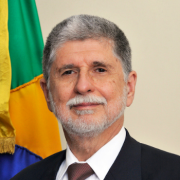

Strategic Youth Network for Development (SYND)

Centre for the Study of Governance Innovation (GovInn)

Center for Climate Change and Development, Alex Ekwueme Federal University, Nigeria

IDDRI

Yale Center for Environmental Law and Policy

OECD

University of Chicago

University of Strathclyde Law School, Glasgow

IDDRi

Marmara University’s Department of International Relations

School of Advanced Studies in the Social Sciences & CNRS

Sciences Po, Paris


UN International Resource Panel

World Trade Organization (WTO)
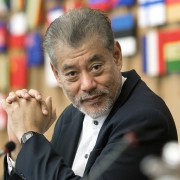
Khazanah Research Institute

IDDRI

CNRS

IDDRI

European Commission
Directorate of United Nations, International Organisations, Human Rights and Francophonie Sub-Directorate for Economic and Budgetary Affairs (NUOI/EB)

Resallience at Vinci Construction (Steering committee of GlobalABC)

Aarhus University

IDDRI

European Climate Foundation

Sciences Po

IDDRI

IDDRI

International Monetary Fund (IMF)
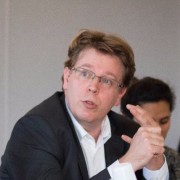
French Ministry of Europe and Foreign Affairs

Center for Governance and Sustainability, University of Massachusetts Boston

Integrated Policy Research Institute (IPRI)

IHEID (Graduate Institute)
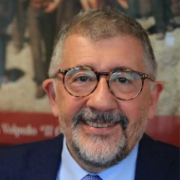
Economic Commission for Latin America and the Caribbean (ECLAC)

Institute of Development Studies

IDDRI

Istituto Affari Internazionali

Grantham Research Institute on Climate Change and the Environment


Paris Peace Forum & Europe Jacques Delors Institute

AIDPROFEN

Sciences Po

Center for Climate Crime Analysis

French Agency for Development (AFD) & President at International Development Finance Club (IDFC)

Galatasaray University
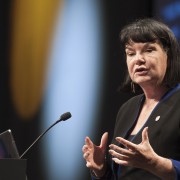
International Trade Union Confederation

Harvard Kennedy School
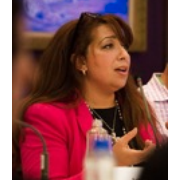
UN Science-Policy-Business Forum on the Environment
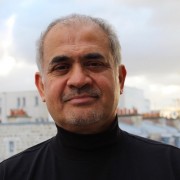
Sciences Po
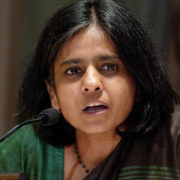
Center for Science and Environment

SWP (Stiftung Wissenschaft und Politik)

IDDRI

Government of Spain
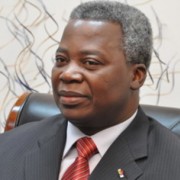
FERDI

Ifri

University of Bath

Institute for Future Initiatives, University of Tokyo

Energy Foundation China

Stockholm Environment Institute (SEI)
Partners
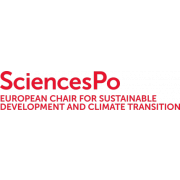


With the support of
